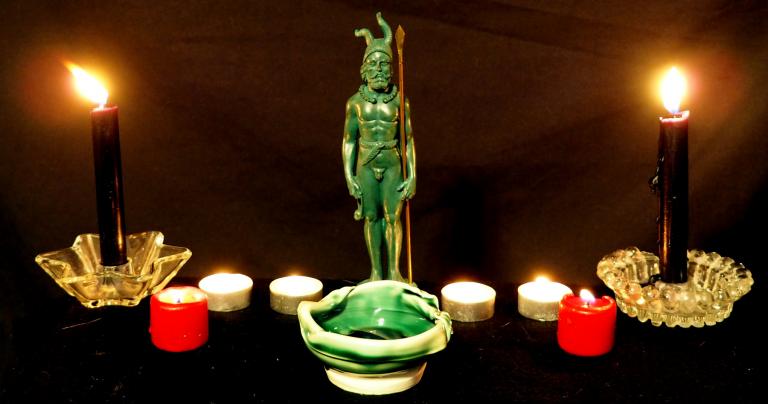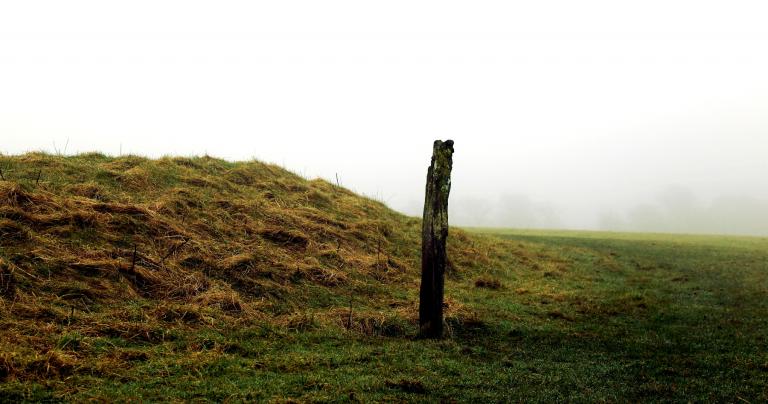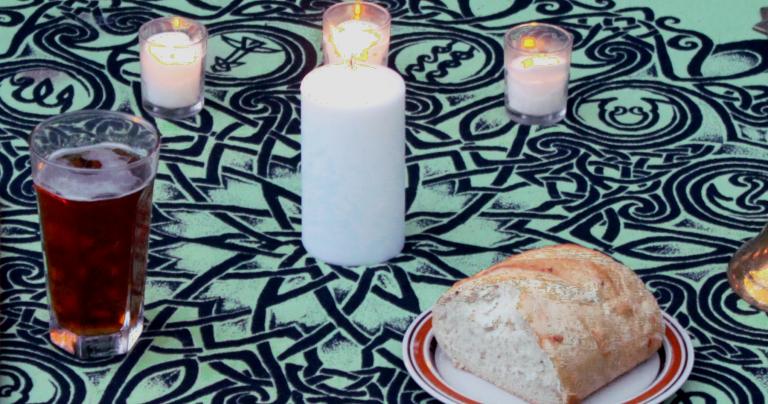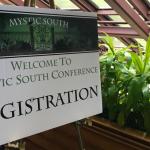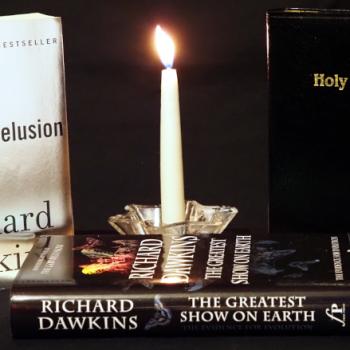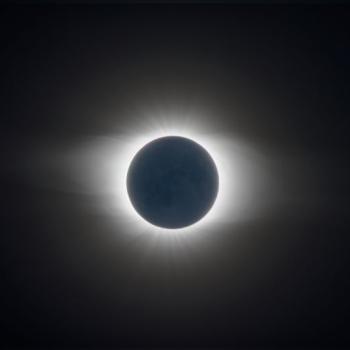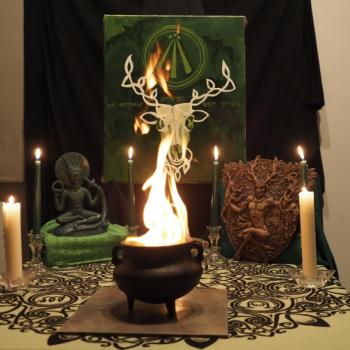Many Pagans are solitary practitioners, either by choice or by necessity. But a lot of Pagan activities for Lughnasadh are designed for large groups. In 2014 and 2015 I wrote a series of rituals for those working alone on the Wheel of the Year. Every year they’re near the top of the list of most popular posts – here’s the Lughnasadh ritual.
But what if you’re part of a group that holds its rituals on the Saturday nearest the holiday and you don’t want to do a second ritual? Or maybe you’re just feel the need to do something other than a ritual this time. Here are eight things you can do to celebrate Lughnasadh.
1. Honor Lugh
Lughnasadh is the Festival of Lugh – it seems only appropriate that any observance or celebration should honor the namesake of the festival. Call to Him: Lugh Lámhfhada, Lugh of the Long Arm! Lugh Samhildánach, Master of All Arts! Make offerings – beer and whiskey are particularly appropriate. Pray, using either standard prayers or your own extemporaneous ones. And then listen – you may hear something in return.
2. Read the stories of Lugh
Last year I provided four condensed stories of Lugh:
For source material, I primarily used Gods and Fighting Men as translated by Lady Augusta Gregory in 1904. There are other sources, but this one is free and readily available.
3. Honor a foster parent
Lughnasadh was named for Lugh, but it was celebrated in honor of His foster mother Tailtiu, who cleared the land of Ireland for planting and died from her exertion.
Perhaps you have a foster parent. Maybe there’s someone who was like a parent to you when you were a child. Or perhaps there’s someone who fills the role of foster parent in your community. Call them up, send them a card, take them out to dinner. Do something to thank them for their support – in honor of Tailtiu.
4. Visit a county or state fair
Lughnasadh is the spiritual ancestor to the many county and state fairs that celebrate agriculture and the harvest. They run from mid-summer to late fall, mainly dependent on the climate and growing season of the region. Here’s a list of state fairs in the United States, and another list of fairs in the UK.
I went to the county fair occasionally when I was growing up in Tennessee. Texas has a huge state fair and it’s located in Dallas. I’ve been here for going on 17 years and I’ve never been. Bad Texan – no brisket. Maybe I’ll finally take a day and go this year…
5. Learn a new skill
While we will never master all arts, we can learn new ones. Take a class in photography, or painting, or cooking. Or engage in that fine and noble art of figuring it out as you go and teach yourself. I’ve had zero classes in photography and one class in photo editing. But I needed to learn how to take good pictures for the blog, and while I’m no professional, I’m very pleased with most of my work. Some of the pictures you see on this blog were set up with high-end amateur gear, but others were shot with my iPhone. Just start shooting, and see what works and what doesn’t.
Cooking, gardening, knitting – whatever it is you’d like to learn, Lughnasadh is a great time to start learning it.
6. Play games
Lughnasadh is a festival, a time for games. This year’s Denton CUUPS Lughnasadh circle will be all about the Games of Lugh.
Many games require other people – perhaps this is a good excuse to get some friends (Pagan or otherwise) together for a gaming night. But this is a post of suggestions of things to do as a solitary…
Fortunately, computers make playing games by yourself easy. I’m fond of the quick and simple games like Solitaire and Mahjong – they make a nice short break when I run into a brief writer’s block. Others prefer the high tech games. Whatever you prefer, take a few minutes and play a game, in honor of Lugh.
7. Bake bread
The Pagan festival of Lughnasadh eventually gave way to the medieval Christian celebration of Lammas – loaf mass. The first grain to be harvested was made into bread and blessed.
Bread was invented multiple times in different varieties in different places. While regularly shaped, white, sliced bread is a 20th century American invention, more traditional breads are thousands of years old. Our ancient ancestors wouldn’t recognize much of the food we eat, but they would find bread very familiar.
If you don’t want to bake bread, you can engage in an even older usage of grain: make beer.
8. Read Lammas Night
Lammas Night by Katherine Kurtz is a wonderful work of historical fiction set in Britain during the early days of World War II. Its main character is a British Intelligence officer who finds himself caught up in an occult battle with Nazi magicians. While it repeats some of Gerald Gardner’s myth-as-history (it is a work of fiction, after all), the book is good portrayal of Wiccan and proto-Wiccan beliefs and practices. Its divination scenes could almost be teaching examples, and its initiation scene is just a few oath-bound elements away from being complete.
Lammas Night is out of print, but it occasionally turns up in used book stores, and there are used copies available on Amazon and other sources at a reasonable price. If you like historical fiction or magical fiction or both, I highly recommend it.
However you celebrate, may your Lughnasadh be bright and joyous!


